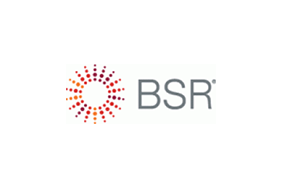BSR's "Beyond Monitoring" Group Enters New Phase of Global Collaboration for Sustainable Supply Chains
Published 03-25-09
Submitted by BSR
SAN FRANCISCO - March 25, 2009 - Building on a visionary approach to next-generation supply chain management developed over several years, Business for Social Responsibility's (BSR) Beyond Monitoring Working Group enters a new phase of practical implementation and learning with the launch of a Virtual Forum to enable global collaboration among a network of companies committed to sustainable supply chain practices. The diverse group of companies - including BSR members A.P. Moller - Maersk A/S, Burberry Group, plc, Electrolux AB, Ford Motor Company, Gap Inc., Hewlett-Packard Company (HP), Nordstrom, Inc., Novo Nordisk A/S, Starbucks Coffee Company, Varner Group AS, and Wal-Mart Stores, Inc.-can use the members-only Virtual Forum (http://bemo.bsr.org) to connect with one another, interact with BSR's global staff, and engage in real-time dialogue on challenges and solutions as they implement Beyond Monitoring concepts in their own supply chains.
"In these challenging economic times, we're guiding our members toward continued progress on sustainable supply chains in the most efficient and cost-effective way possible," said Cody Sisco, Manager of BSR's Beyond Monitoring Working Group. "By combining in-person meetings with virtual collaboration, we're harnessing our collective brainpower to accelerate the pace of our work together."
This year, BSR's Beyond Monitoring Working Group is focused on translating principles into action by exploring practical applications of the four Beyond Monitoring pillars, including:
(1) Internal Alignment and Business Integration: Building the right internal organizational structure and defining the right mix of incentives and accountability for design, procurement, and production staff to ensure business practices reinforce good working conditions and environmental management.
(2) Supplier Ownership and Accountability: Building shared ownership with strategic suppliers and creating an assessment model that evaluates suppliers based on having the right people, systems, and resources in place to effectively manage labor, health and safety, and environmental conditions.
(3) Worker Empowerment: Designing effective grievance systems and sharing best practices around building union capacity.
(4) Public Policy Frameworks: Understanding the changing regulatory landscape around chemicals (e.g. REACH regulations), greenhouse gas emissions, and workplace conditions-and what companies can do to prepare.
In addition, the group of participating companies from across a broad range of industries-including retail, apparel, electronics, pharmaceuticals, and transportation-will develop a Beyond Monitoring scorecard for assessing their policies and practices against jointly agreed criteria that track to the four Beyond Monitoring pillars outlined above. The scorecard will be a tool for determining where companies can improve their supply chain practices as well as a mechanism for keeping companies accountable to their commitments. Lessons learned and best practices from this work will be shared publicly in the form of case studies. "By sharing their approaches and challenges with the public, these companies are making a significant contribution to broader understanding of the changes needed to create more sustainable supply chains," said Sisco. "More importantly, the case studies will be examples other companies can use to begin their own transformation to be more sustainable." BSR's first two trends reports on the concepts of internal alignment and supplier ownership use detailed case studies to show companies how to put these principles into action.
The Beyond Monitoring Working Group is a hands-on collaboration that BSR member companies can join to accelerate the development of their supply chain sustainability programs. To learn more about Beyond Monitoring, visit www.bsr.org/beyond-monitoring or email beyondmonitoring@bsr.org.
About BSR
A leader in corporate responsibility since 1992, Business for Social Responsibility (BSR) works with its global network of more than 250 member companies to develop sustainable business strategies and solutions through consulting, research, and cross-sector collaboration. With six offices in Asia, Europe, and North America, BSR leverages its expertise in environment, human rights, economic development, and transparency and accountability to guide global companies toward creating a just and sustainable world. Visit www.bsr.org for more information.

BSR
BSR
Since 1992, Business for Social Responsibility (BSR) has been providing socially responsible business solutions to many of the world's leading corporations. Headquartered in San Francisco, with offices in Europe and China, BSR is a nonprofit business association that serves its 250 member companies and other Global 1000 enterprises. Through advisory services, convenings and research, BSR works with corporations and concerned stakeholders of all types to create a more just and sustainable global economy. For more information, visit www.bsr.org.
More from BSR

